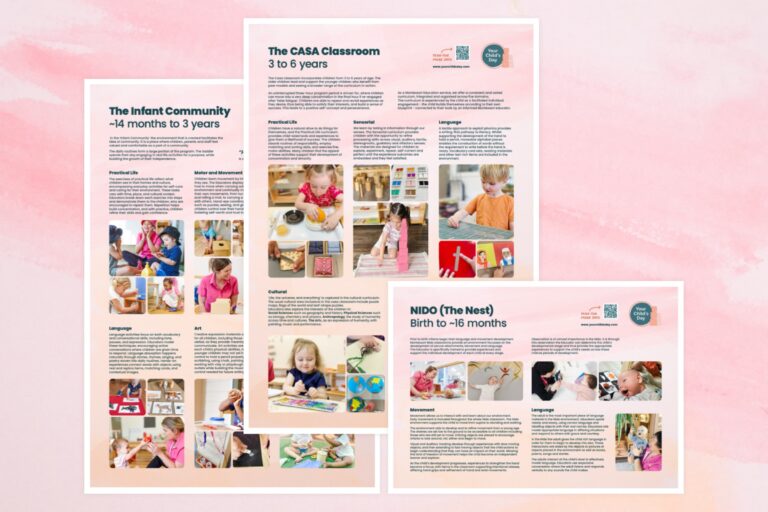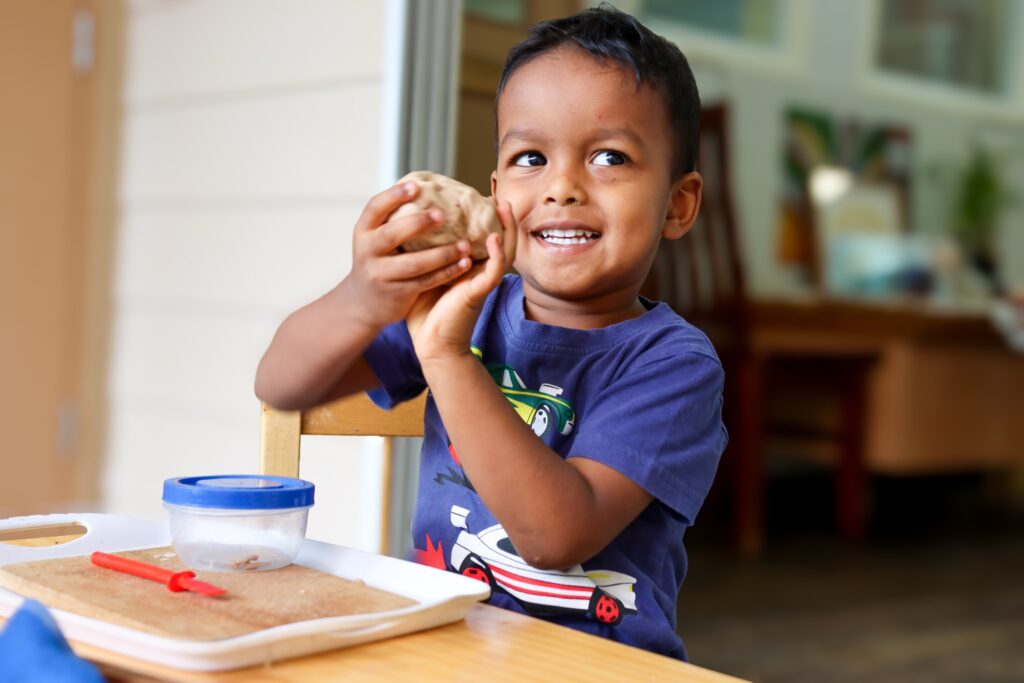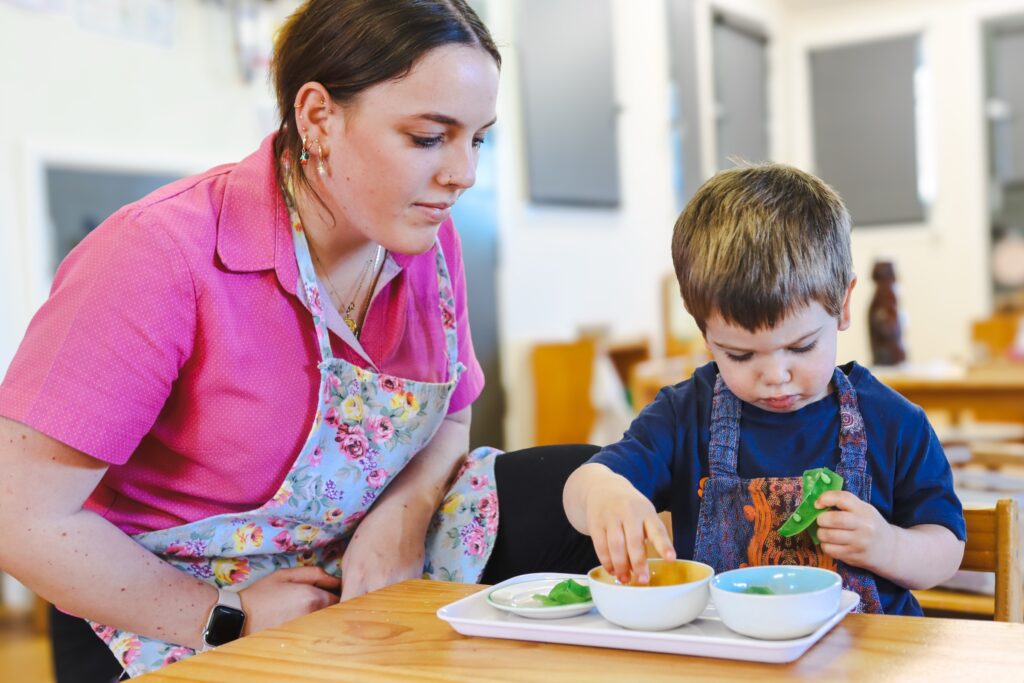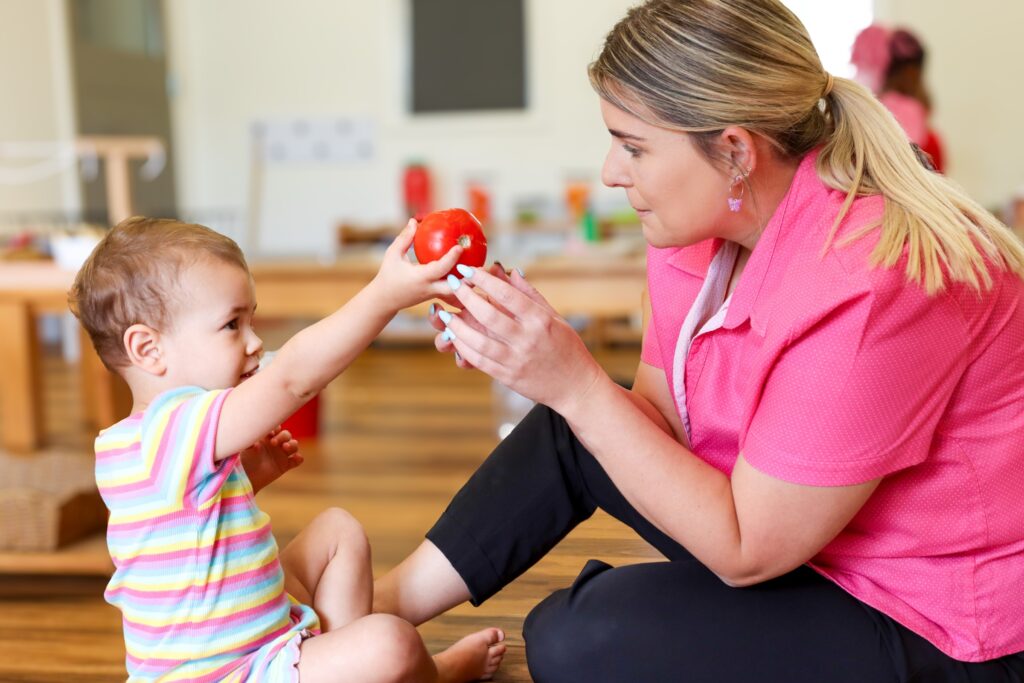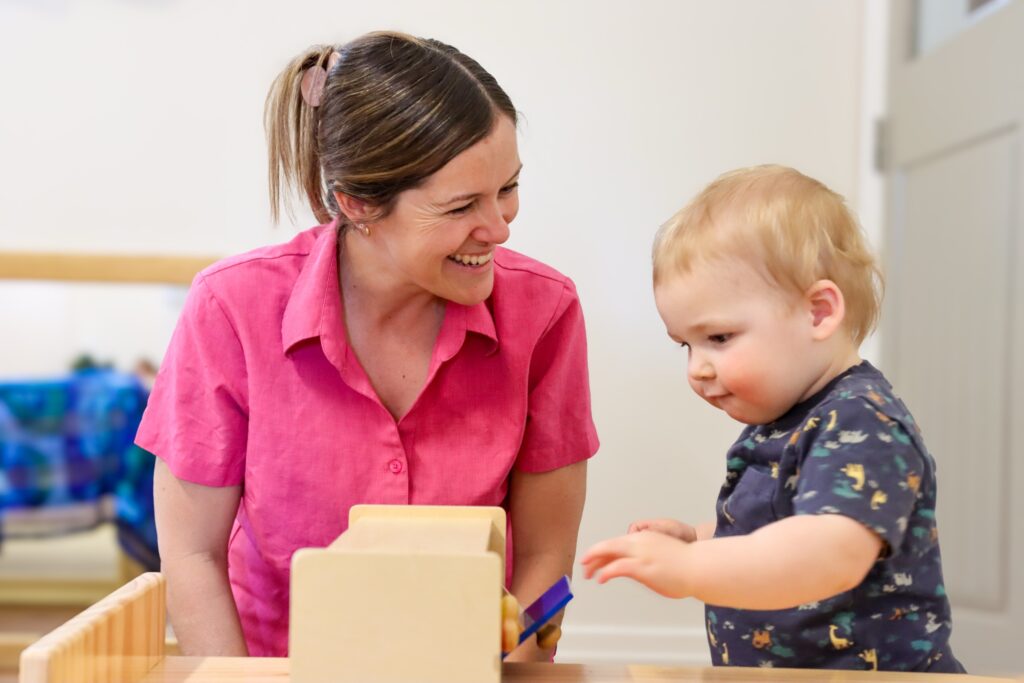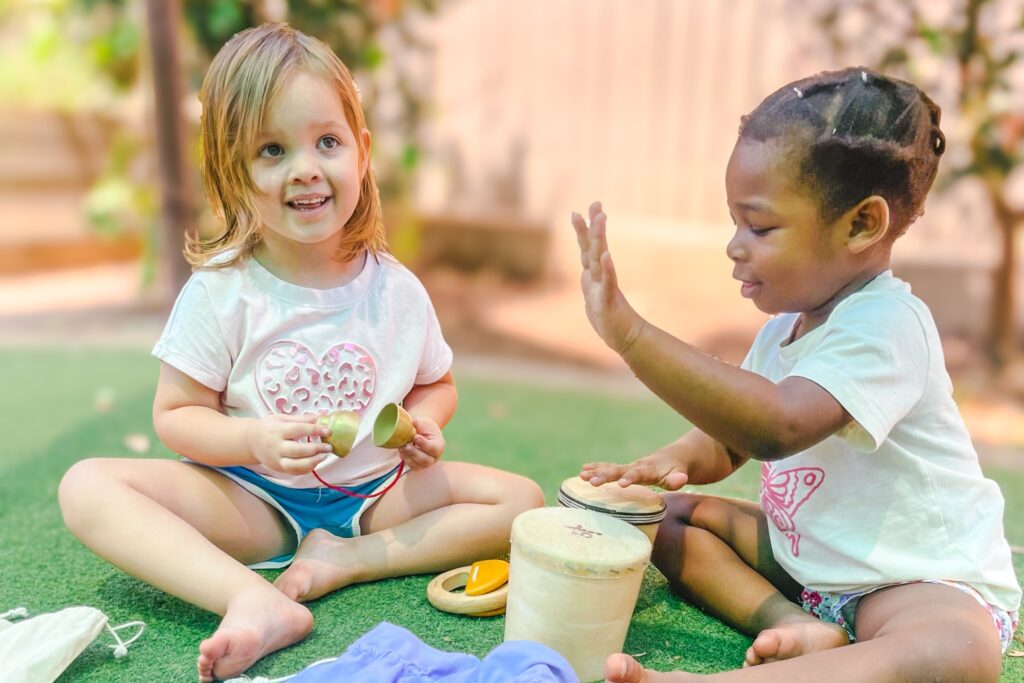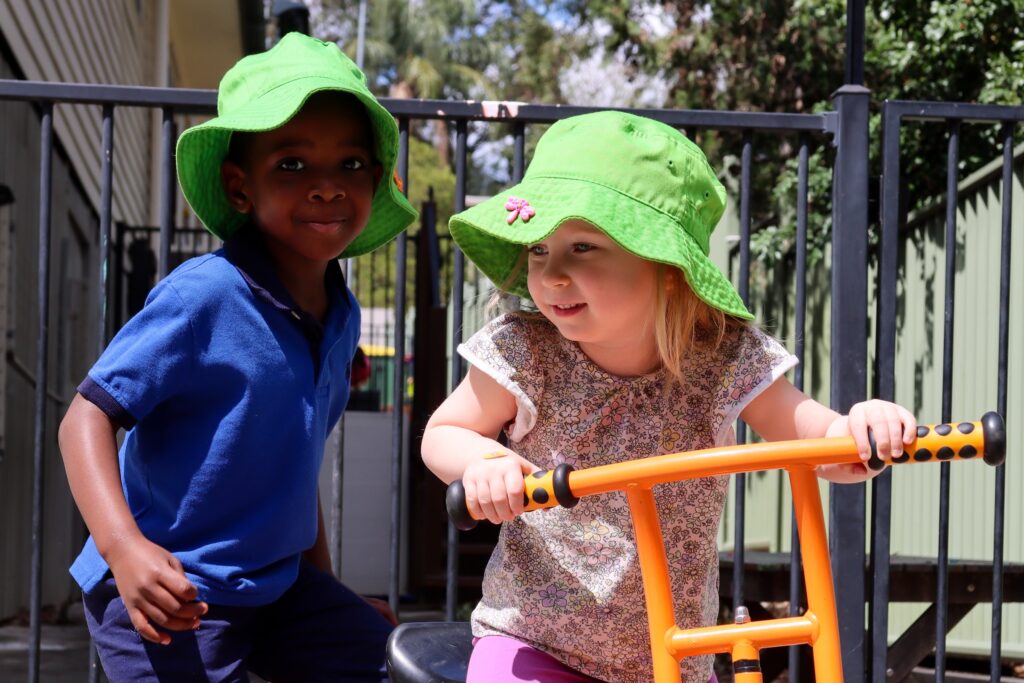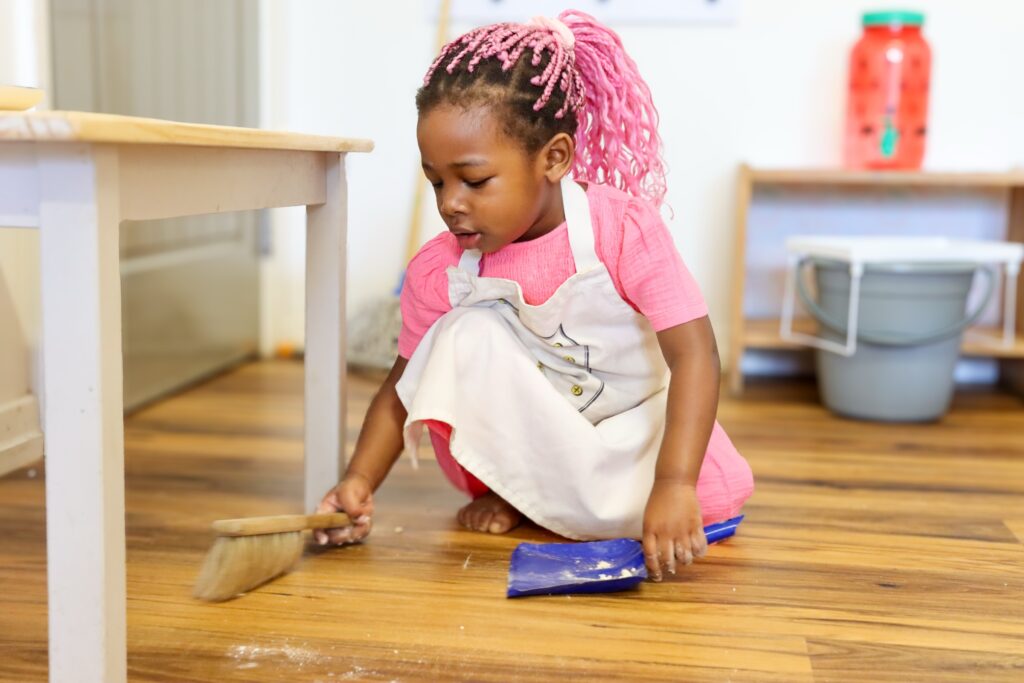Grace and Courtesy
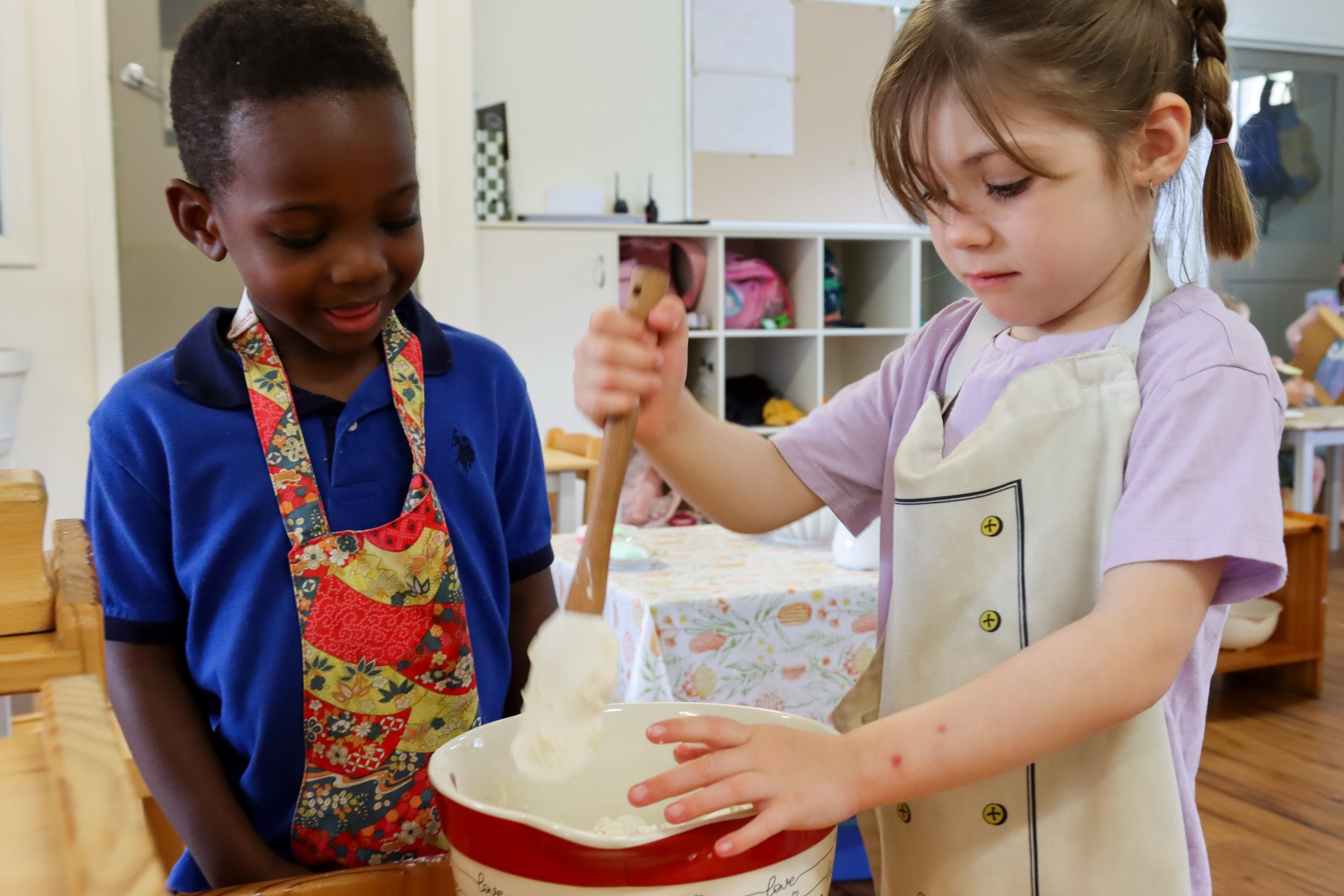
Grace relates to the way we use our movements and the way we move. It is not only about how we move but also how we move furniture, stools, trays and mats.
As soon as the child is standing or as soon as they enter the Infant Community they need to be moving in the environment in a way that will keep everyone safe.
It can also have an impact on the child’s self-esteem especially if they have not been shown how to do things.
Courtesy relates to our interest in other people. It is more authentic in how to care and be thoughtful to others. It is having a genuine interest in other people.
All Grace and Courtesy lessons are giving children an understanding on how to respond in different situations. This depends on each culture and changes depending on which community you are in.
We need to be careful not to judge each child, as within different cultures they may have different rules and different styles of raising their child. You have to decide what sort of person you are and the type of role model you want to be.
We need to teach children what is acceptable behaviour in different social situations such as how to say good morning, thank someone or how to ask for something. We can also do this by role modelling with the children, their parents and extended family, co-workers and visitors. We need to also remember to act the same with all people even if you are upset with someone.
We need to sit down with the children at meal times to role model. If a child has put flowers on the table we need to thank them for doing so. If you are eating food that children have prepared earlier, they also need to be thanked. “Who sliced the apple? Thank you ___ for doing that to share.”
If a child has a ‘meltdown’ possibly due to being tired or hungry, you must be consistent and follow through.
- Be calm.
- Get down to their level.
- Don’t give in!
- Model the acceptable behaviour and response.
Toddlers can be kind and courteous to their friends. They have the potential with the right role models.

